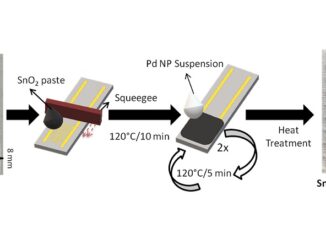
P-Block Elements Activate Pt Surfaces for the Electrooxidation of Alcohols and Polyols When Promoting the −OH formation
Abstract: The electro-oxidation of alcohols and polyols plays a pivotal role in energy conversion and biomass utilization, offering profound implications for producing energy via fuel cells and the synthesis of value-added chemicals, including biomass derivatives and green hydrogen, through electrolyzers. Addressing the challenge of catalyst poisoning and the need for enhanced catalytic activity, this study delves into utilizing p-block elements (Bi, Pb, Tl, Se, Ge, Sb, Sn, In, and S) adsorbed on platinum electrodes. This approach is chosen to mitigate the drawbacks associated with Pt or Pd, including poisoning by CO and other strongly adsorbed unknown intermediates, and to provide information toward developing more suitable catalysts for the task at hand. Through a combination of electrochemistry, analytical chemistry techniques, and density functional theory (DFT) calculations, we demonstrate that these adatoms significantly increase the activity of Pt electrodes by stabilizing hydroxyl (−OH) species rather than altering the stability of carbon-adsorbed alcohol intermediates. This stabilization of −OH species is identified as the rate-determining step in the electro-oxidation process, suggesting a general trend that could apply to the oxidation of a wide range of alcohols and polyols. Our findings not only shed light on the mechanistic aspects of alcohol and polyol electro-oxidation but also highlight how this knowledge paves the way for the rational design of materials, in this specific case, catalysts for energy conversion and biomass utilization applications.
Author(s): Matheus B. C. de Souza; Gabriela Soffiati; Victor S. Lemos; Victor Y. Yukuhiro; Miguel A. San-Miguel; Pablo S. Fernández
ACS Catalysis
Published: August 16, 2024, Vol 14/Issue 17
DOI: https://doi.org/10.1021/acscatal.4c02443
CDMF
The CDMF, hosted at the Federal University of São Carlos (UFSCar), is one of the Research, Innovation and Dissemination Centers (RIDC) supported by the São Paulo State Research Support Foundation (Fapesp), and also receives investment from the National Council Scientific and Technological Development (CNPq), from the National Institute of Science and Technology of Materials in Nanotechnology (INCTMN).




